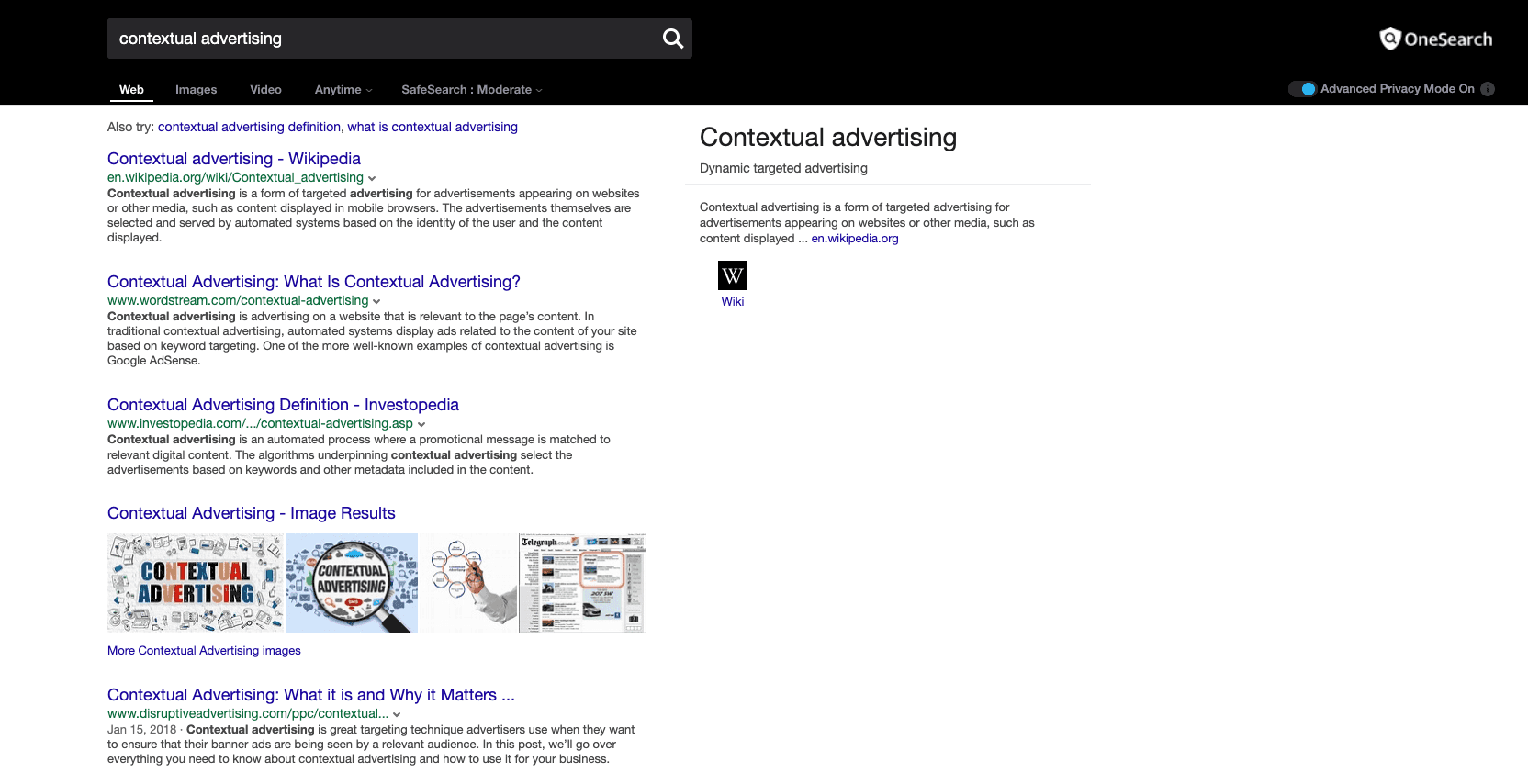Subscribe now and get the latest podcast releases delivered straight to your inbox.
Verizon enters the search engine market with privacy-focused OneSearch

Jan 27, 2020

Google’s dominance in the search engine market is so complete that no one looks confused when you say you need to google something. For many, the word “Google” is simply synonymous with search engine. I mean, can you really imagine anyone saying they have to “DuckDuckGo” their question?
With such strong competition in the search engine market, it comes as somewhat of a surprise that Verizon Media has launched OneSearch.
Although this is a tough market to enter, OneSearch has one differentiator that will make it stand out from search engine industry mainstays like Google (and, you know, those other ones like Yahoo, Bing, and Ask.com).
Verizon Media, which owns subsidiaries like Yahoo, AOL, HuffPost, and TechCrunch, holds a lot of industry weight and capital.
They certainly have the capital to disrupt the search engine market, provided they can provide a useful product and spread the word effectively.
So, what makes OneSearch different?
OneSearch’s features
Privacy
One of the biggest issues users have with other search engines is that they use cookies to track your online behavior. Meaning, if you visit a particular site you will most likely start seeing retargeting ads for that site.
OneSearch will be a search engine focused on maintaining searchers’ privacy.
Michael Albers, Verizon Media’s head of consumer product stated:
“We deeply believe in consumer trust and choice, both for our user community and our partners. In support of our commitment to trust and transparency, we are excited to launch OneSearch, an innovative new online search experience built for privacy-minded searchers. With it, you can search the internet with increased confidence, knowing your personal and search data isn't being tracked, stored, or shared with advertisers."
OneSearch crawls the Internet to look for search results and also runs contextual ads based on search keywords rather than cookies. (Interestingly, OneSearch is powered by Bing.)
Instead of using cookies, the search engine encrypts user’s search terms and builds a URL based on those terms. The encryption key will then expire after an hour to prevent third parties from viewing the browser history after that hour is up.
The default search mode called “Advanced Privacy Mode” must be turned on to use the expiring encryption.
This also means that OneSearch will not share your personal data with advertisers.

Trending Now
Unlike the majority of other search engines, once a searcher is on the OneSearch site they can click into the search box and find a list of “trending now” searches.
A spokesperson from Verizon Media told Search Engine Land, “Trending Now uses search logs to determine if there are entities (people, places or things) for which searches have been peaking recently. We compare the number of searches for that entity within a short, recent, period of time with the average baseline for that entity over an extended period of time. A pool of those that are showing the most dramatic uplift are selected, and we rotate through that pool.”
If you are looking to stay up to date on what is happening online at any particular moment, this feature could be beneficial to you.
What does this mean for searchers?
Today, there is very little privacy for online searchers.
Since I do the majority of my internet searching on my cell phone, I have started using private mode on Safari and incognito mode on Google Chrome to avoid being inundated with retargeting ads for whatever products or services that I was recently looking up.
The fact that OneSearch will not be selling my private data is a huge win for me from a personal standpoint, but might pose a challenge to marketers, advertisers, and search engine optimizers.
I’ll be interested to test out how OneSearch’s speed and user experience compare to powerhouses like Google and Yahoo.
I know I’m willing to test it out if it means that I won’t be targeted based on my search history and my personal data won’t be sold to advertisers — and I imagine other internet users out there will feel the same.
What does this mean for marketers and advertisers?
It is uncertain exactly how OneSearch will impact digital marketers and paid media advertisers, but this launch certainly seems emblematic of a larger trend.
Earlier this month, Google announced that Chrome will stop using cookies by 2020. Mozilla released an updated, privacy-minded Firefox browser last fall. Just last week, Microsoft released its own new privacy-focused browser called Edge Chromium.
On top of all this, the California Consumer Privacy Act was officially put into effect on January 1.
Clearly there is intense focus on privacy in the tech sector. So, is Verizon leading the charge or reacting to a shifting market?
Since OneSearch will not use retargeting ads and will focus on contextual ads, I can foresee the search engine negatively impacting businesses that rely solely on retargeting ads.
I do not see OneSearch having much of a negative effect on businesses who focus on keyword search-based ads, though Of course this all depends on how many searchers actually end up using OneSearch as their primary search engine.
Will the broad shift towards consumer privacy drastically change the marketing and communications industry — and reshape the search engine landscape as we know it?
With this latest release from a major media company, it’s clear that some experts believe Google is not as invincible as it may seem.
Free: Assessment